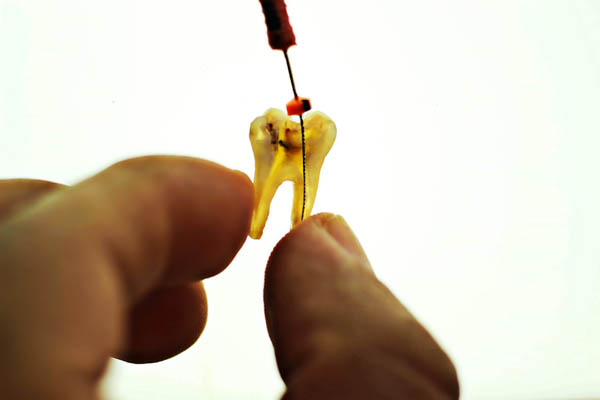When Is Endodontics Necessary?

Endodontics may be necessary if the pulp inside of the root of a tooth becomes damaged, decayed, or infected. This generally arises when the root of the tooth is exposed due to deep dental decay, dental trauma, or periodontal concerns (e.g., gum recession). Endodontics aims to restore the health of the tooth to avoid tooth loss.
Endodontics explained: when is it necessary?
While there are other treatments involved with endodontics as well, the main procedure is root canal therapy. The following is a detailed review of what a dentist looks for when diagnosing a patient, the risks of leaving endodontic concerns untreated, and how the root canal therapy process in particular works.
What does endodontics involve?
Endodontics is the study and treatment of issues related to the dental pulp. This refers to the mass of connective tissues inside of the pulp chamber, which rests inside the root of the tooth. The primary treatment procedure that dentists perform is root canal therapy. This includes the diagnosis of infected, decayed, or damaged dental pulp. Root canal therapy involves the removal of infected or damaged pulp and filling the cavity with a material known as gutta-percha, a healthy substitute material.
What signs indicate a need for endodontics treatment?
The signs that indicate a root canal may be necessary are a sharp tooth pain that does not go away, tooth sensitivity, swollen gums, and a darkening of the tooth. These symptoms should not be ignored, and the patient should visit a professional for diagnosis and treatment as soon as possible after symptoms develop.
What are the risks of not treating endodontic concerns?
The ultimate result of not treating endodontic concerns is typically the loss of the damaged, decayed, or infected tooth. However, this can take some time, and substantial discomfort is likely to exist in the meantime, along with an increased risk of additional concerns such as the spreading of a tooth infection.
How does the endodontics treatment process work?
The endodontics process first begins with a diagnosis of the underlying cause of the symptoms. As mentioned, the first thing the dental professional is likely to check for is tooth decay (particularly severe decay that extends toward the tooth root), severe damage to the tooth, or signs of an oral infection.
If the tooth cannot be treated through less invasive means, a root canal is recommended. This procedure involves removing the infected or damaged portion of the tooth’s root inside of the pulp chamber and filling the tooth with a material known as gutta-percha. Many patients also require a dental crown after root canal therapy to restore the look of the tooth and protect it from further harm.
Schedule an appointment with our dental team
If you are experiencing deep tooth pain or have symptoms that indicate a tooth infection, then call our dental team today. We can examine the severity of the concern and make a professional treatment recommendation. If root canal therapy is the best course of action, then our team can help you through each step of the treatment process.
Request an appointment here: https://www.bridgewaterfamilydental.com or call Bridgewater Family Dental at (513) 712-9642 for an appointment in our Hamilton office.
Check out what others are saying about our dental services on Yelp: Endodontic Surgery in Hamilton, OH.
Related Posts
Dental restoration can be used to rebuild and restore the function of damaged teeth. They can also be used to restore the aesthetics of damaged teeth. Tooth decay is one of the main reasons teeth become damaged, but other factors like trauma to the face or habits like nail biting or teeth grinding can lead…
Choosing the best dentist is essential for maintaining your oral health. However, finding the right dentist for you can feel overwhelming with so many options available. Fortunately, by considering a few key factors and gathering some key information, you can identify a trustworthy dental professional who meets your needs.Convenience plays a significant role in choosing…
If you have ever had a dental crown placed, you know that the process often involves multiple visits and temporary crowns. A CEREC dentist offers a faster solution to the typical dental crown process. Using advanced technology, these dentists create durable, high-quality crowns in just one appointment.A CEREC dentist uses Computer-Aided Design and Manufacturing (CAD/CAM)…
Dental bonding is a way to improve your smile by closing gaps between teeth without orthodontic treatment, repairing chips and cracks and fixing other minor cosmetic imperfections. This review highlights what dental bonding is, what the benefits of treatment are and when to consider dental bonding treatment to improve your smile. No one should have to…
